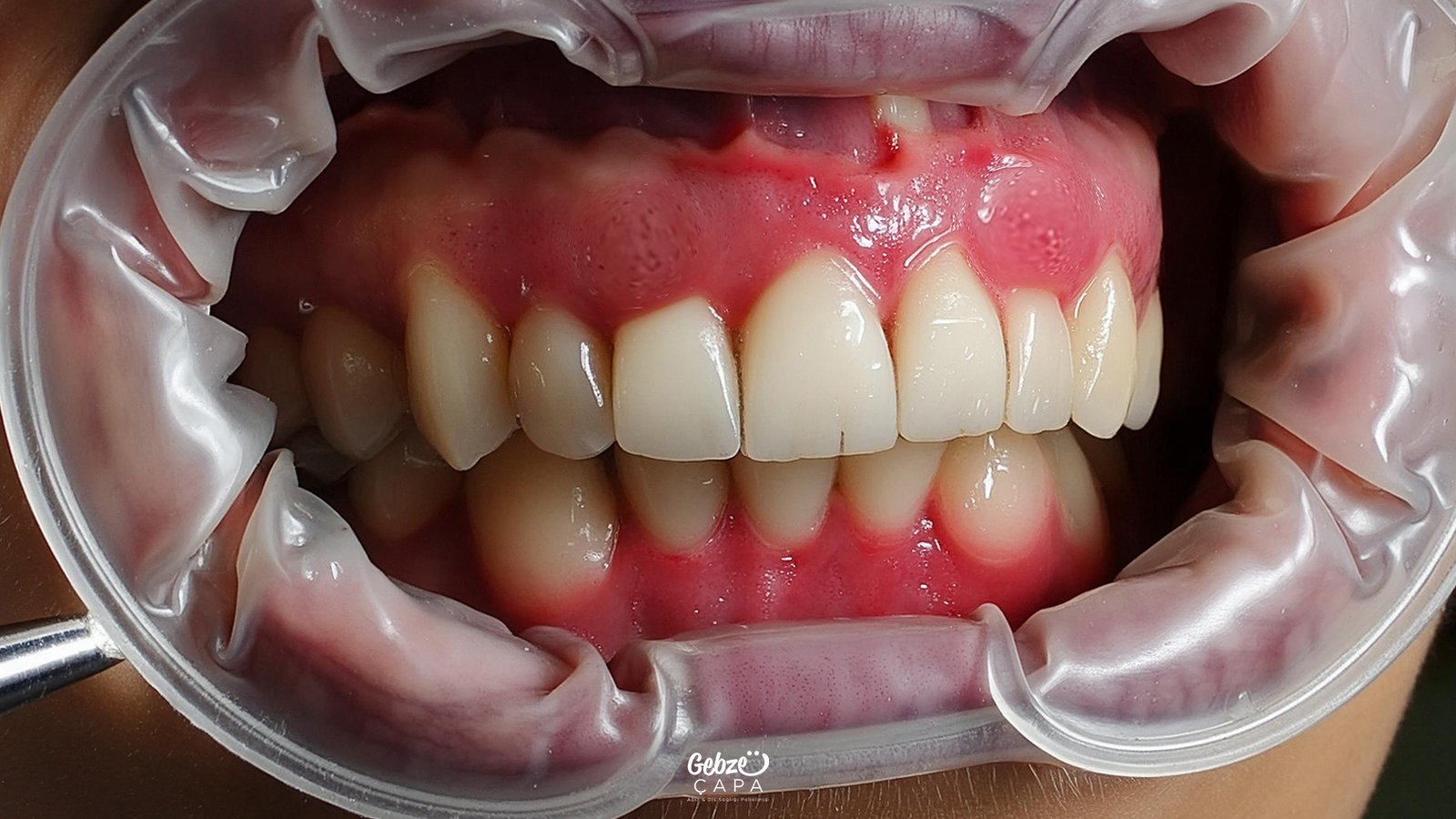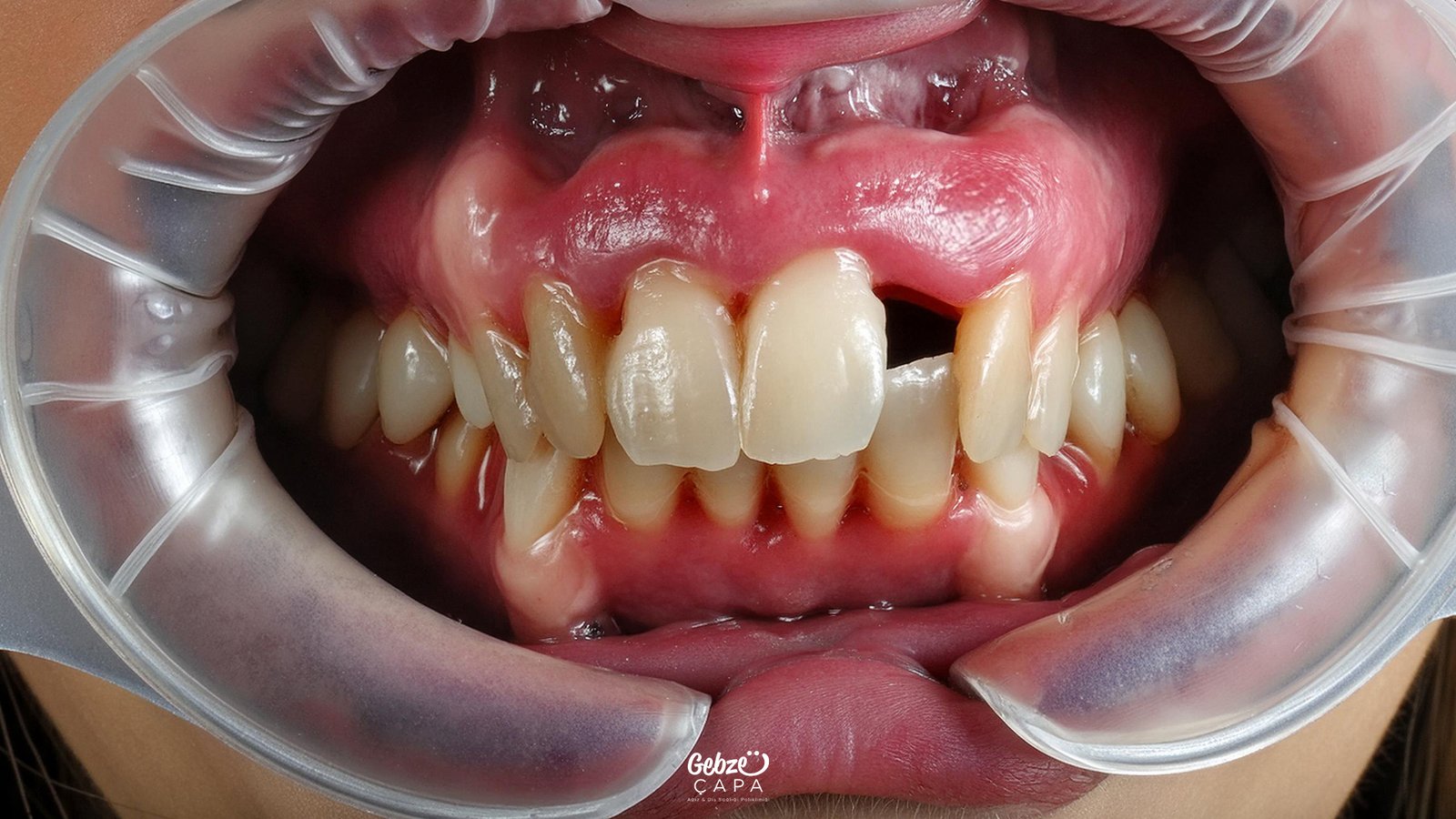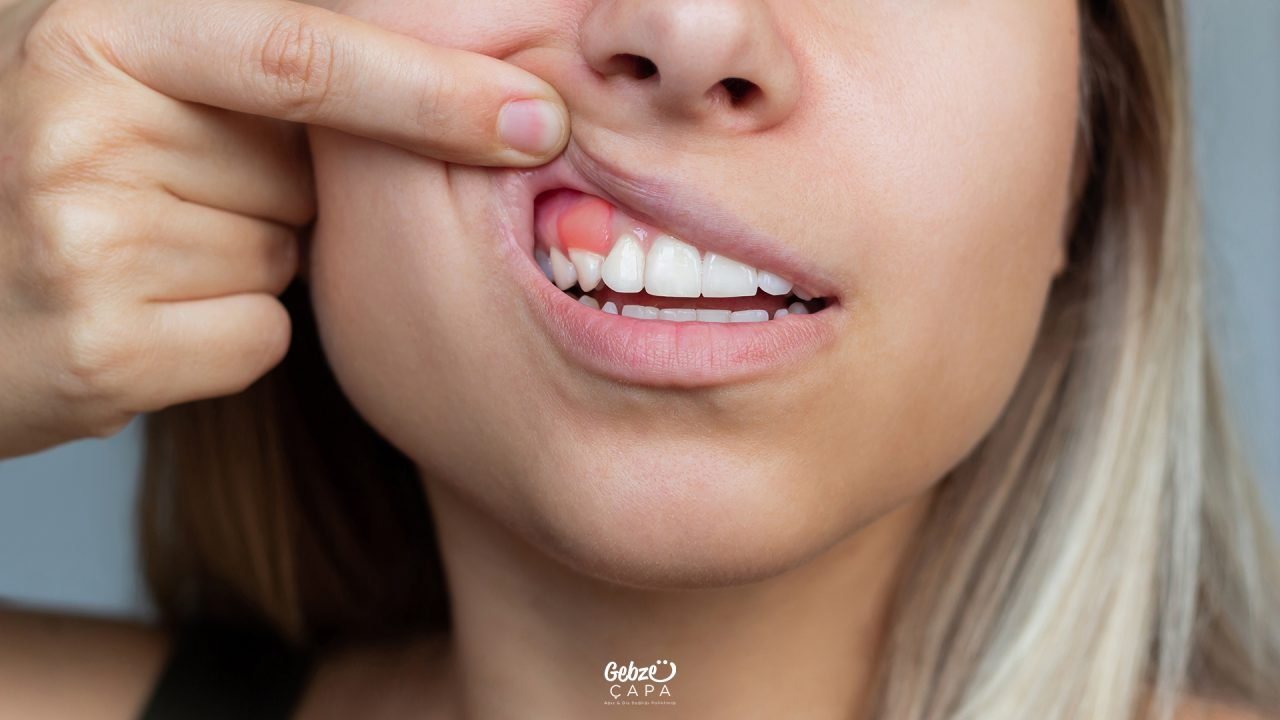What is Good for Swollen Gums?
Gums are the soft tissues surrounding your teeth. This tissue, which surrounds the roots of your teeth and surrounds them, fixes your teeth in the bone. Gums play an important role in the process of chewing your teeth, speaking, and maintaining your overall oral health.
Gums help prevent the buildup of bacteria and food debris inside the mouth. In addition, symptoms such as bleeding gums may be a sign of gum disease. Maintaining gum health is important for maintaining your overall oral health, and regular brushing, flossing, and regular dentist visits can play an important role in maintaining gum health.
What Causes Swelling in Gums?
Swollen gums can be a serious problem and should not be ignored. There may be many different reasons for this problem. Poor oral hygiene is one of the most common causes of swollen gums. When teeth and gums are not cleaned regularly, bacteria can accumulate at the gum line, causing inflammation and swelling. Additionally, other important causes that may lead to swollen gums may include infections, hormonal changes, smoking, wrong eating habits and genetic factors. Each cause may require different treatments and measures.
- Poor Oral Hygiene: Not brushing and flossing regularly is the main cause of gingivitis. Plaque and tartar accumulation leads to inflammation of the gums. This condition can turn into more serious gum diseases over time.
- Infections: Bacterial and viral infections can cause swollen gums. Gum diseases, especially periodontitis, can lead to tooth loss if left untreated. In addition, fungal infections in the mouth can also negatively affect gum health.
- Hormonal Changes: Changes in hormone levels during periods such as pregnancy, puberty, menstruation and menopause can cause gums to become more sensitive and inflamed. During these periods, gum swelling is more commonly observed.
- Smoking: Smoking increases the risk of developing gum disease. Smoking reduces blood circulation in the mouth, making the healing process of the gums difficult and weakening the immune system.
- Wrong Nutrition Habits: Malnutrition can reduce the body’s resistance to infections. Vitamin C deficiency, in particular, can negatively affect gum health. A balanced diet is important for healthy gums.
- Genetic Factors: Predisposition to gum diseases may be genetic in some individuals. People with a family history of gum disease are at higher risk.

How to Get Rid of Swelling in Gums
- Regular Teeth Brushing and Flossing: One of the most important steps in maintaining gum health and reducing gum swelling is regular tooth brushing. Brushing your teeth at least twice a day, in the morning and in the evening, is a basic necessity for maintaining your oral health. It is of great importance to use the correct techniques during the tooth brushing process. You should place the toothbrush on your gums at a 45-degree angle and brush with circular movements. This method helps remove plaque and bacteria that accumulate along the gum line. The duration of brushing is also very important; Ideally, each brushing session should last at least two minutes. It is recommended that the toothbrush be soft-bristled and replaced every three months or when the bristles become worn.
- Mouthwashes: Mouthwashes with antiseptic properties can help kill bacteria in the gums and reduce swelling. These solutions support oral hygiene by targeting bacteria in areas that toothbrushes and floss cannot reach. Regularly used antiseptic mouthwashes reduce gingivitis, eliminate bad breath and improve overall oral health. Commercial mouthwash solutions available in grocery stores are usually alcohol-based and contain strong antiseptic ingredients. However, plant-based solutions are also available for those looking for more natural and side-free alternatives.
- Gargle with Salt Water: Salt water has natural antiseptic properties and can help reduce gum swelling. You can prepare this solution by adding half a teaspoon of salt to a glass of warm water. You can gargle using this mixture several times a day.
- Aloe Vera Gel: Aloe vera plant has anti-inflammatory and antibacterial properties. You can directly apply aloe vera gel to reduce gum swelling. For the gel to be effective, you should choose a product containing at least 70% pure aloe vera.
- Cold and Hot Application: Cold and hot compresses can help reduce gum swelling. You can apply cold or heat to your gums with the help of a cotton cloth. However, before applying heat, you should consult your doctor if your gums are inflamed or excessively sensitive.
- Natural Antibacterial Foods: Natural antibacterial foods, such as garlic and onions, can help fight bacteria on the gums. Eating them or applying them directly to the gums can reduce swelling.
- Diet: A healthy diet can positively affect gum health. A diet containing nutrients such as vitamin C, vitamin D, and omega-3 fatty acids can reduce gingivitis. Additionally, avoiding sugary and starchy foods is also important to maintain gum health.
- Regular Dental Checkups: Visiting your dentist regularly is important to check your gum health and detect possible problems early. Professional dental cleanings and exams can help you maintain your gum health.

To summarize:
Gum swelling and other gum problems can lead to more serious health problems if neglected. Gargle solutions and other natural methods that you can apply at home are generally effective for mild and temporary complaints. However, these methods cannot get to the root of the problem and cannot treat a serious underlying infection or disease. That’s why it’s so important to visit your dentist regularly and listen to professional advice.
Your dentist can create a personalized oral care plan for you and perform further examinations when deemed necessary. Gum diseases can be treated more easily and effectively when diagnosed early. Especially if you have symptoms such as swelling, bleeding or pain, you should consult a specialist without delay.
Periodontology Specialist Miraç Elbir



